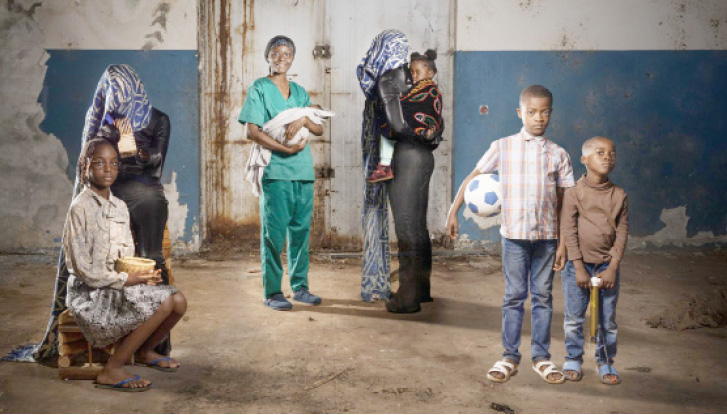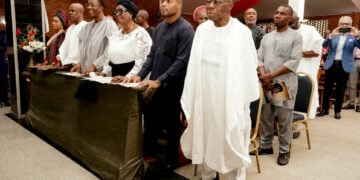Cameroonian film director, actor and model, Stella Chuisse’s photo exhibition I Want To Be Like Her is a tribute to ten exceptional African women both living and dead, who have played significant roles in the political, economic, social, artistic and spiritual growth of the Africa.
Displayed at the Centre d’Art Photographique Reza in Haute-Marne, France, it features women as writer, Chimamanda Ngozi Adichie; director general of the World Trade Organization, Ngozi Okonjo-Iweala; Cameroonian lawyer and LGBTQ+ rights advocate, Alice Nkom; the late Kenyan environmentalist, Wangari Maathai; Benin Republic singer, songwriter and composer, Angelique Kidjo among others.
These women, Chuisse said are trailblazers in their professions who have changed and are changing narratives about Africa.
To create the images Chuisse uses herself as the model, dressing up in outfits similar to the women’s everyday attire and posing like they do in their popular public portraits. She renders an artistic touch to the portrait via the integration of two silhouette figures wrapped in her native ‘ndop’ cloth – which signifies royalty and importance – and some elements of African lifestyle and crafts.
“The idea behind the silhouettes is to show how culture can contribute to the particular identity and strength of these women, from Adichie’s use of Igbo language in her books, to the particular ways Nkom, Okonjo-Iweala, Edna Adan and Maathai wrap their head ties, to Kidjo’s use of different African languages and instruments in her songs.
“This attachment and faithfulness to the continent is something I wanted to be present in the images to suggest that African culture and traditions have a role to play in shaping future generations of African female leaders.
“A soundtrack containing excerpts of inspiring speeches from some of these women accompanies the images,” said Chuisse.
With the success of the exhibition, she aims to extend the ongoing project to feature 30 additional African female trailblazers, as a means of encouraging young African girls that they too can be instruments for Africa’s development.





